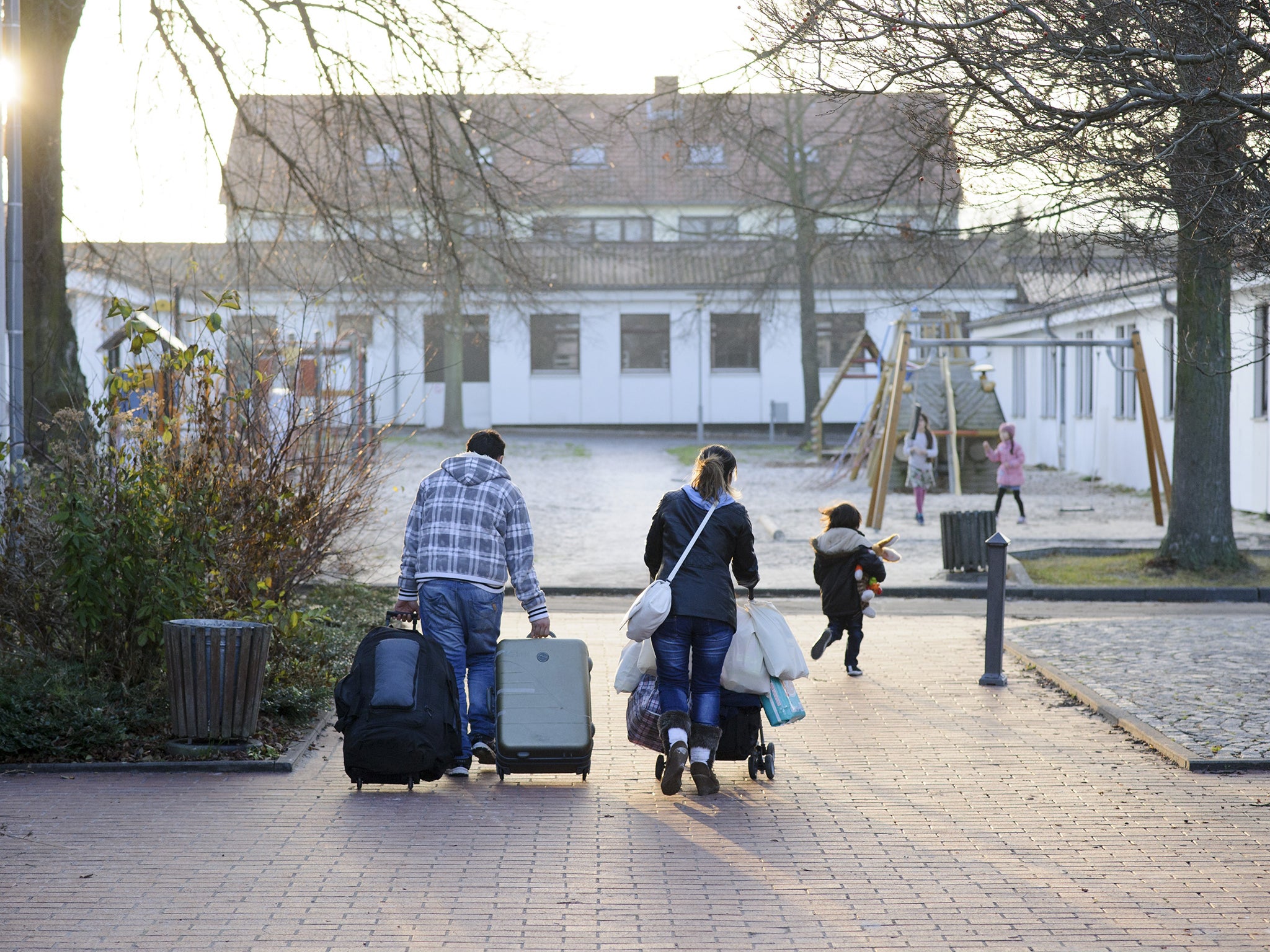German refugees hide behind razor wire to escape angry backlash in Bautzen
The Spreehotel’s defences were erected three months ago to protect 150 asylum seekers from Syria, Afghanistan and 15 other countries

Your support helps us to tell the story
From reproductive rights to climate change to Big Tech, The Independent is on the ground when the story is developing. Whether it's investigating the financials of Elon Musk's pro-Trump PAC or producing our latest documentary, 'The A Word', which shines a light on the American women fighting for reproductive rights, we know how important it is to parse out the facts from the messaging.
At such a critical moment in US history, we need reporters on the ground. Your donation allows us to keep sending journalists to speak to both sides of the story.
The Independent is trusted by Americans across the entire political spectrum. And unlike many other quality news outlets, we choose not to lock Americans out of our reporting and analysis with paywalls. We believe quality journalism should be available to everyone, paid for by those who can afford it.
Your support makes all the difference.A10ft steel fence topped with razor wire and metal spikes surrounds the “Spreehotel” – once a hotel, now a refugee hostel on the outskirts of the east German town of Bautzen.
It looks like a relic of the Cold War, but the Spreehotel’s defences were erected only three months ago at a cost of £15,000 to protect 150 asylum seekers from Syria, Afghanistan and 15 other countries who live within.
“The fence may look sinister, but its not some kind of Berlin Wall that’s meant to lock people in,” manager Peter Kilian Rausch, explained. “I had to put it up to protect of my residents. They are frightened.”
Since he converted his conference hotel into a refugee centre four months ago, Mr Rausch has twice been threatened with murder. His establishment was surrounded nightly by gangs of black-clad neo-Nazis, until the police stepped in.
Mr Rausch is banned from three shops in Bautzen for encouraging “refugee spongers” to live near the town. He has also been spat at and insulted by local people when giving his residents a lift into town, and attacked online.

The Spreehotel’s residents are also frightened. Most are wary about going into Bautzen except in groups. Mohammed Orfali, 24, from Syria, who crossed the Mediterranean in an open boat, said: “I always thought of Germany as the greatest country. I am just glad that I have met a few nicer Germans who speak English.”
Mr Rausch and his residents are the victims of a racist backlash against Germany’s growing refugee population, which has grown to be the largest for 20 years. An average of 25,000 people request asylum in the country each month. By the end of 2014, 200,000 immigrants will have applied. In comparison, the UK had just 20,000 asylum applications during the whole of 2013.
Last week German television viewers were shown a video found on the mobile phone of a security guard working at a refugee hostel in north-west Germany.
The video showed two grinning guards, one with his boot placed on the neck of frightened and handcuffed Algerian asylum seeker lying on the floor. The guard asks the refugee whether he wants “a kick in the face”. Police investigating the incident said the video looked like something from “Abu Ghraib or Guantanamo Bay”.

The news magazine Der Spiegel commented last week: “The politicians appear helpless in the face of he growing refugee influx.”
But the issue has provided big political gains for Germany’s new eurosceptic Alternative for Germany (AfD) party, which has just won its first seats in the parliaments of three states. In Thuringia, where the AfD’s candidate claimed foreigners were set to replace Germans as the dominant racial group, the party won 12 per cent of the vote.
Chancellor Angela Merkel’s conservative allies have responded by calling for the reintroduction of controls on Germany’s border with Austria. The federal government also this month imposed a block on asylum applications from the western Balkans by declaring that the region was officially “safe”.
But given the increasingly unstable situation in the Middle East, few expect Europe’s refugee flow to decrease in the short term. At the Spreehotel, Mr Rausch says the addition of a security fence has increased his residents’ sense of well-being: “It cost a lot but I’m very glad it’s there,” he said.
Join our commenting forum
Join thought-provoking conversations, follow other Independent readers and see their replies
Comments